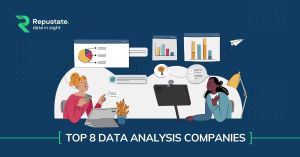Using social media for financial trading?
Could Twitter posts affect the stock market? Could my photos on Pinterest cause the DOW to plunge? Well, maybe not but the financial wizards at Thomson Reuters are currently developing a new service to scan the general posts of many social media sites to get a feel for how the stock market might react according to public sentiment and current events.
Historically, investors and traders relied on a lot of fundamental and technical analysis to help them make their investments. While online financial investors have relied on social trading (using Web 2.0 content applications as an information source for making financial trading decisions) for a while, it’s the first time a financial provider will analyze social media data. Using social media listening for mixing in the sentiment displayed on social networks provides a more transparent and real-time financial analysis.
The Toronto-based Thomson Reuters’ new service will analyze not only official posts on millions of websites to figure out trading trends, but corresponding comments as well. About 50,000 news sites and four million social media sites and blogs will be scanned.
Previously, data providers like Thomson Reuters, Dow Jones and Bloomberg used similar services just for searching news sites, but this is the first time a financial provider is expanding into social media. It’s hoped that by providing info from the social media channels, the service’s feed will help to trigger trading strategies. The service will rely on data given by Moreover Technologies, and it will be filtered according to country, stock, market and sector.
Back in 2009, researchers from the University of Indiana created an algorithm for Twitter which could guess the rise or fall of the Dow Jones Industrial Average. The accuracy rate was 87 per cent, 3 to 4 days ahead of time.
According to a Thomson Reuters press release from March 7th, Rich Brown, who heads the quantitative and event driven trading solutions for the company, investment firms are investing in new techniques to understand a lot of unstructured data that is available over the Internet.
“When properly analysed and understood, this data can complement a firm’s trading and investment strategies and give it a competitive edge,” he said. Just three years ago, only two per cent of firms used the machine readable news feeds. According to Aite Group, that number is up to 35 per cent.
On a similar note, law enforcement is becoming increasingly complex and the FBI have realized that simply tapping someone’s phone won’t be enough to catch an associate of illegal monetary transfers when they have so many ways of creating communication networks.
The FBI has launched a service called Perfect Hedge Investigations, which will monitor social networks to help weed out insider trading and securities fraud.
Richard Jacobs, an FBI special agent, told ComputerWorld that they “will go to whatever lengths we have to, to keep up with changes in technology.”
 Home
Home
 Jun 5, 2012
Jun 5, 2012

 Jeremy Wemple
Jeremy Wemple
 Dr. Ayman Abdelazem
Dr. Ayman Abdelazem
 Dr. Salah Alnajem, PhD
Dr. Salah Alnajem, PhD
 David Allen
David Allen

 Repustate Team
Repustate Team

